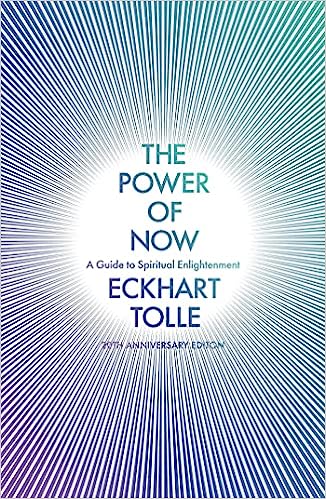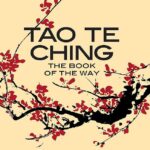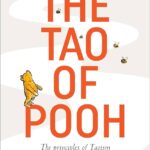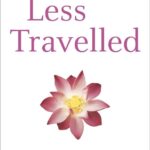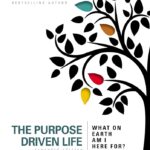Welcome to Thinkers Books, where we explore the transformative power of literature. Today, we delve into a book that has impacted millions worldwide: ‘The Power of Now’ by Eckhart Tolle. This book is not merely a collection of pages; it’s a spiritual journey that invites us to dwell in the present moment.
Eckhart Tolle introduces us to the concept that our minds are perpetually filled with thoughts, predominantly about the past and future. According to him, this preoccupation is the primary source of our unhappiness. The book presents several key concepts; one of them is Presence. Tolle posits that our authentic being resides in the present moment, which we often overlook due to our constant mental chatter about past regrets and future worries. We can unearth our true selves and attain inner tranquillity by learning to silence this chatter.
Tolle delves into the Ego and our Identification with the Mind, explaining that we frequently confuse our thoughts with our identity, leading to suffering. He suggests observing our thoughts without judgment or attachment, thus disassociating our identity from our mind.
Tolle also introduces the Pain-Body, an entity he describes as a compilation of our emotional pain. Acknowledging and accepting our pain body instead of resisting it paves the way towards healing.
In Tolle’s perspective, surrender signifies a profound wisdom of yielding to the flow of life rather than opposing it. It’s about accepting the ‘isness’ of the present moment, where life’s flow can be most vividly experienced.
Lastly, Tolle guides us on Living in the Now, a state of contentment and enlightenment. Here, the noise of the thinking mind and the ego quietens, allowing us to live fully in the present.
Let’s now examine the top five learning points from ‘The Power of Now’ and their practical implications:
- Presence: This concept is about being fully aware and engaged in the current moment rather than being lost in thoughts about the past or future. Tolle suggests that this constant mental chatter is a significant barrier to happiness and inner peace. By practising mindfulness and meditation, we can train ourselves to focus on the present moment and experience life more deeply and authentically. This practice can lead to increased joy, clarity, and tranquillity.
- Ego and Identification with the Mind: Many confuse our thoughts with our identity. We believe that we are our thoughts and get entangled in them, leading to suffering. Tolle encourages us to observe our thoughts as if they were passing clouds without judgment or attachment. This practice helps us realise that our thoughts are not who we are, which leads to better decision-making and inner peace. It allows us to respond to situations with more wisdom and less reactivity.
- Pain-Body: According to Tolle, the Pain-Body is our accumulated emotional pain. This pain can be due to past trauma, disappointments, or any form of emotional distress. Often, we resist this pain, which only leads to its intensification. Tolle teaches us to recognise and accept our pain body. By acknowledging its existence instead of fighting it, we allow the healing process to begin. This acceptance is not about resignation but facing reality and working through it.
- Surrender: In Tolle’s teachings, Surrender is about accepting the present moment as it is. This does not mean giving up or resigning ourselves to a situation but acknowledging and embracing the current reality. By surrendering, we let go of the resistance we often put up against life’s flow. This surrender can relieve suffering and open up possibilities we might have missed due to our opposition.
- Living in the Now: Tolle asserts that the present moment is all we truly have, and yet, we spend so much time dwelling in the past or worrying about the future that we miss out on the richness of the now. He encourages us to make the present moment the primary focus of our lives. This practice can transform our perception of life and enrich our experiences. It can lead to heightened awareness and profound peace, where we can genuinely engage with life.
Essentially, ‘The Power of Now’ is a transformative guide that encourages us to live fully in the present moment, transcend our ego, and find inner peace. It’s a journey of self-discovery, offering us a chance to break free from our self-imposed limitations and genuinely experience the joy of being.
This book has personally enlightened me and had a profound impact. It made me realise how frequently I’m lost in thoughts of the past or the future, missing out on the beauty of the present. The practical techniques provided in the book have helped bring more awareness and presence into my daily life.
Thank you for joining us on this journey through ‘The Power of Now.’ We invite you to continue exploring more book summaries at Thinkers Books. Until our next literary adventure, keep reading and keep thinking.

